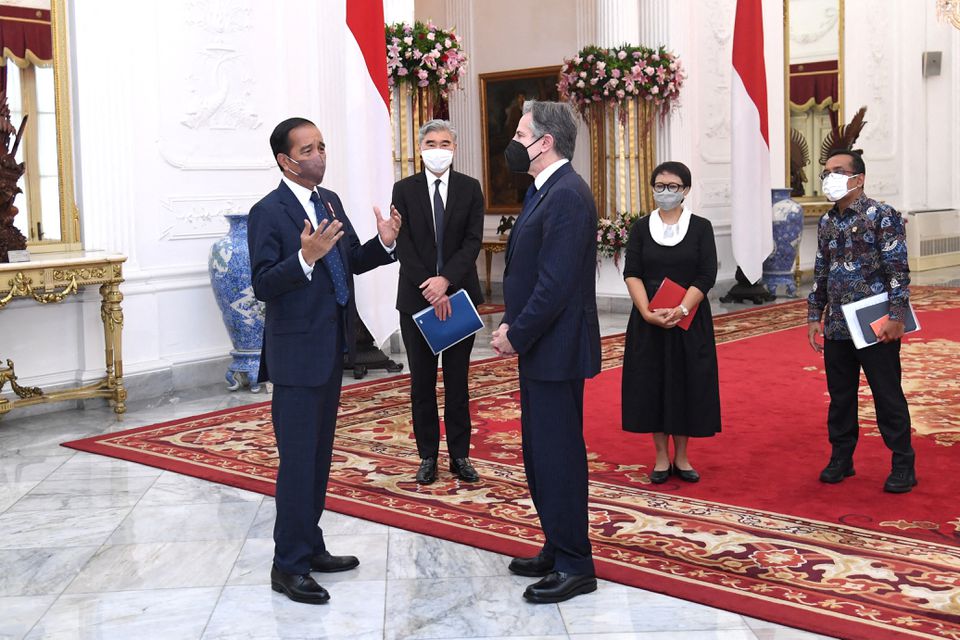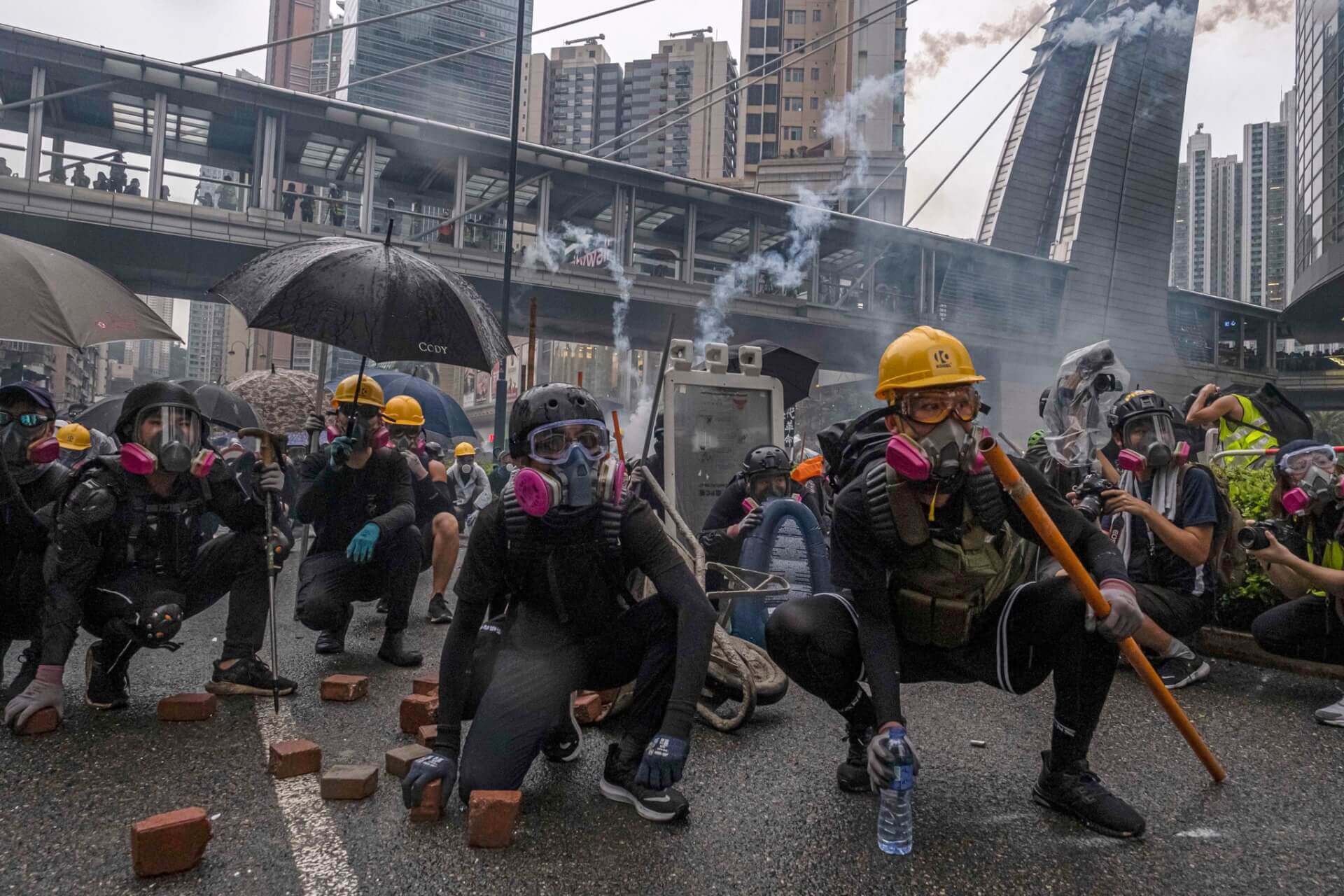South Asia
Despite calls from rights groups and the international community, the Nepalese government has refused to issue refugee cards to the at least 20,000 Tibetan refugees living in the country. However, it will issue ID cards for its Bhutanese refugees. [ANI News]
In an unusual move, Sri Lankan President Gotabaya Rajapaksa suspended the Parliament for one week and left for Singapore on an unscheduled visit. His office made no immediate comment on the decision. The parliament, which was originally set to convene on January 11, will now convene on January 18. [NDTV]
Central Asia and the Caucasus
Human rights watchdog Civicus Monitor has reported that civic liberties in Central Asia have rapidly declined under authoritarian leadership. It found that Kazakhstan, Kyrgyzstan, Tajikistan, Turkmenistan, and Uzbekistan have all seen increasing authoritarian trends recently, wherein their governments have targeted critics, activists, journalists, lawyers, and people in exile. [Civicus Monitor]
European Council President Charles Michel will host Armenian Prime Minister Nikol Pashinyan and Azerbaijani President Ilham Aliyev in Brussels on Tuesday. The meeting is aimed at resolving the dispute between Baku and Yerevan over the Nagorno-Karabakh region, especially as tensions between the two neighbours have escalated over the last few weeks. [Armen Press]
East and Southeast Asia
Eight pro-democracy activists in Hong Kong were sentenced to up to 14 months in prison on Monday. They have been charged with incitement and for organising and participating in a banned vigil last year that honoured victims of China’s 1989 Tiananmen Square massacre. [Channel News Asia]
United States Secretary of State Antony Blinken met with Indonesian President Joko Widodo on Monday. Blinken expressed Washington’s “keen interest” in partnering with Indonesia in the field of infrastructure. Blinken also congratulated President Widodo on Indonesia’s G20 presidency. After his trip to Indonesia, Blinken will then travel to Malaysia and Thailand. [The Straits Times]
Europe
The European Union (EU) remains divided over a diplomatic boycott of the 2022 Beijing Winter Olympics While Lithuania has refused to attend the Games, France and Italy have refused to join the United States-led diplomatic boycott, calling it a symbolic gesture. EU leaders are set to debate the issue on Thursday. So far, the United States, Australia, Canada, New Zealand, and the United Kingdom have announced a diplomatic boycott of the Winter Olympics, citing human rights abuses in Xinjiang and Hong Kong. [Reuters]
Lithuanian Foreign Minister Gabrielius Landsbergis and Transport Minister Marius Skuodis have both resigned after a scandal exposed that the state-owned railway, Lietuvos Geležinkeliai, was violating American trade sanctions imposed on Belarus. The sanctions were a part of measures taken against Belarusian President Alexander Lukashenko. The scandal reveals Vilnius’ dependence on Belarus, as the company will require €49 million in annual subsidies to offset the losses. [bneIntellinews]
Latin America and the Caribbean
Starting on January 1 next year, Argentina will require all residents aged 13 and above to present vaccination cards via the CuidAr app for activities that are deemed to have a “high epidemiological and sanitary risk.” The pass will be required for outdoor events with more than 1,000 people, group trips, and private gatherings in indoor spaces. [MercoPress]
Mexican President Andrés Manuel López Obrador offered his support to his Peruvian counterpart Pedro Castillo against right-wing opposition groups, whom he described as ‘racist,’ given Castillo’s Indigenous background. The leftist leader recently survived an impeachment motion in the lower house of parliament and holds an approval rating of just 25%. [Telesur]

Middle East and North Africa (MENA)
Tunisian President Kais Saied announced on Monday that the country would hold a referendum to amend its constitution in July next year. Saied also said that the parliament, which he suspended in July 2021, will remain closed for a year, after which elections will be held in mid-December. [The National]
Tens of thousands of teachers protested across Iran for a third day in a row demanding freedom for their jailed colleagues and a salary hike. Videos circulating on social media showed massive protests in Tehran, many provincial capitals, including Tabriz and Bushehr, and several small cities. [Iran International]
North America
On Monday, United States (US) Air Force spokeswoman Ann Stefanek announced that 27 airmen had been discharged for disobeying the COVID-19 vaccine mandate. Defense Secretary Lloyd Austin has emphasised the importance of service members being vaccinated. According to Stefanek, all the airmen were low-ranking personnel in their first term of enlistment and none of them sought any type of medical, administrative, or religious exemptions. [The Voice of America]
United States (US) Chargé d’Affaires to China David Meale urged the Asian giant to raise its climate ambitions, despite Beijing calling it a “good year” in terms of climate collaboration with Washington. Meale welcomed the US-China deal at the COP26 climate summit in Glasgow, saying, “This is one area where we are cooperating and cooperating very productively.” China is still the largest consumer and producer of coal in the world, making it a crucial player in the fight against climate change. [Newsweek]
Oceania
Australian Deputy Prime Minister Barnaby Joyce has called for Wikileaks founder Julian Assange to either be kept in the United Kingdom and tried there or returned to Australia. Assange is facing extradition to the United States after the UK High Court overturned a ruling barring his extradition to the US last week. Other members of the Parliament also joined Joyce in asking for a diplomatic intervention to pursue Assange’s return to Australia. [ABC News]
The Australian government entered into an agreement with pharmaceutical giant Moderna to produce millions of mRNA vaccines a year from 2024. Under the agreement, the Victorian government will build a local manufacturing unit in the state. Prime Minister Scott Morrison said, “The new mRNA manufacturing facility in Victoria will produce respiratory vaccines for potential future pandemics and seasonal health issues such as the common flu, protecting lives and livelihoods.” [Brisbane Times]
Sub-Saharan Africa
South African President Cyril Ramaphosa has tested positive for COVID-19, announced Minister in the Presidency Mondli Gungubele. The president is fully vaccinated and is currently undergoing a period of self-isolation in Cape Town, where he is said to be recovering from “mild symptoms.” Gungubele said the president continues to urge citizens to get vaccinated as it lowers the chances of contracting a “serious illness.” [News24]
Nigerian Aviation Minister Hadi Sirika threatened to issue reciprocal bans on flights from the United Kingdom, Canada, Argentina, and Saudi Arabia. On December 5, the United Kingdom placed Nigeria on its ‘red list,’ whereby it suspended visitor visa applications and flights from the country. Many countries have issued similar bans due to the fears about the spread of the Omicron variant of COVID-19. [Pulse]

